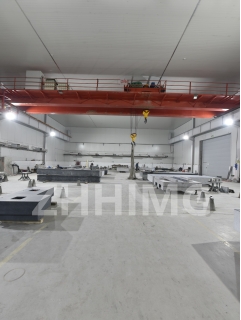When it comes to the measurement accuracy of different types of coordinate measuring machines (CMM), there are several factors to consider. Coordinate measuring machines are widely used in manufacturing and quality control processes to ensure the precision and accuracy of machined parts. The three main types of CMMs are bridge, gantry, and portable CMMs, and each type has its own advantages and disadvantages in terms of measurement accuracy.
Bridge coordinate measuring machines are known for their high accuracy. They are typically used to measure small to medium-sized parts with tight tolerances. The bridge design provides stability and rigidity, helping to improve the overall accuracy of the measurement. However, the size and weight of a bridge CMM can limit its flexibility and portability.
Gantry CMMs, on the other hand, are suitable for measuring larger, heavier parts. They have good accuracy and are commonly used in industries such as aerospace and automotive manufacturing. Gantry CMMs offer a balance between accuracy and size, making them versatile and suitable for a variety of applications. However, their size and fixed location may be limitations in some manufacturing environments.
Portable CMMs are designed for flexibility and mobility. They are ideal for measuring parts that are difficult to move or for on-site inspections. While portable CMMs may not offer the same level of accuracy as bridge or gantry CMMs, they offer a practical solution for measuring large or fixed parts. The trade-off between accuracy and portability makes portable CMMs valuable tools in certain applications.
In terms of measurement accuracy, bridge CMMs are generally considered the most accurate, followed by gantry CMMs and then portable CMMs. However, it is important to note that the specific accuracy of a CMM also depends on factors such as calibration, maintenance, and operator skill. Ultimately, the choice of CMM type should be based on the specific requirements of the application, taking into account factors such as part size, weight, and portability needs.
In summary, the measurement accuracy of different types of CMMs varies depending on their design and intended use. Bridge CMMs offer high accuracy but may lack portability, while gantry CMMs offer a balance between accuracy and size. Portable CMMs prioritize mobility over ultimate accuracy, making them suitable for specific applications. Understanding the advantages and limitations of each type of CMM is crucial to choosing the most appropriate solution for a given measurement task.
Post time: May-27-2024

